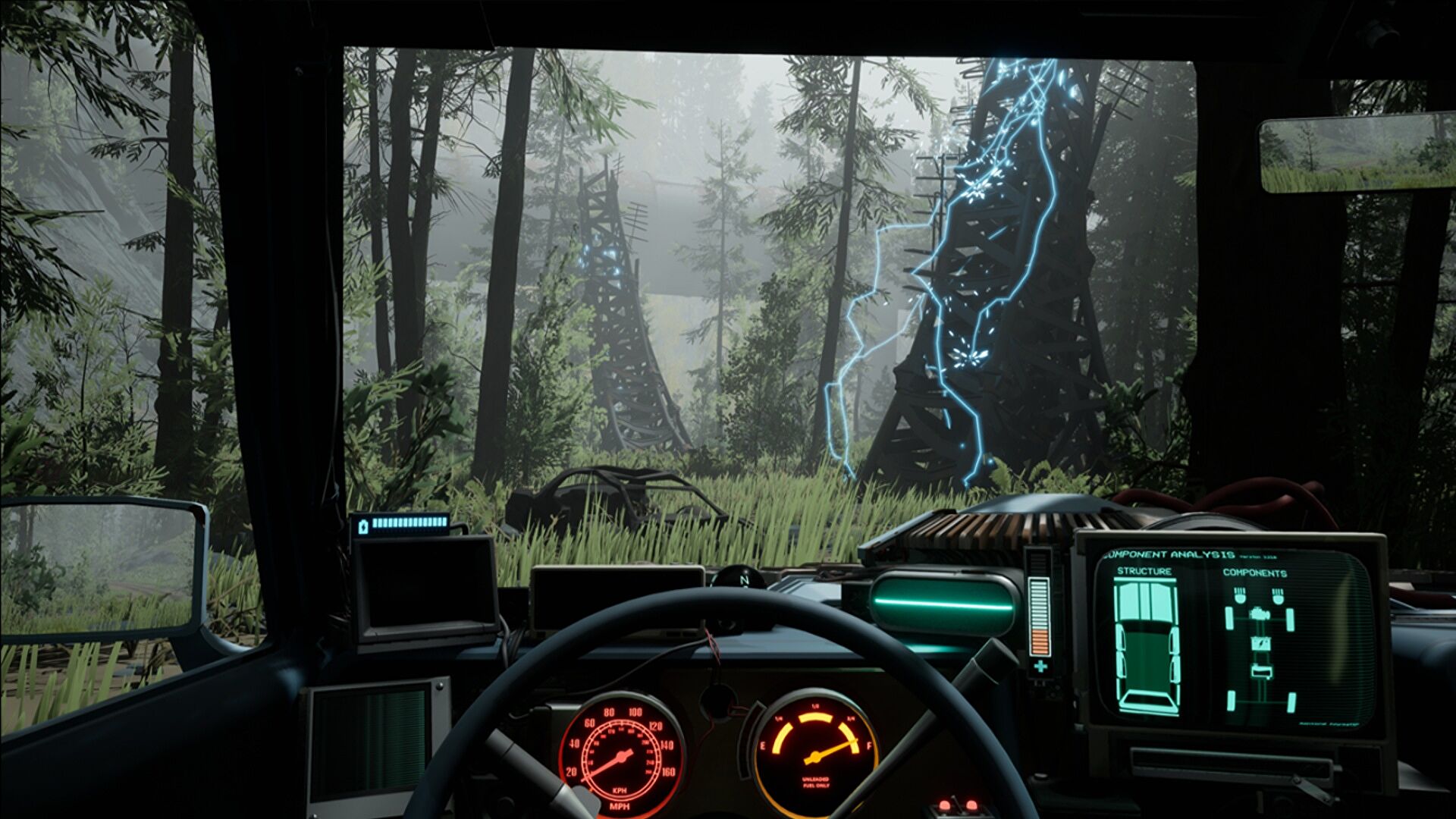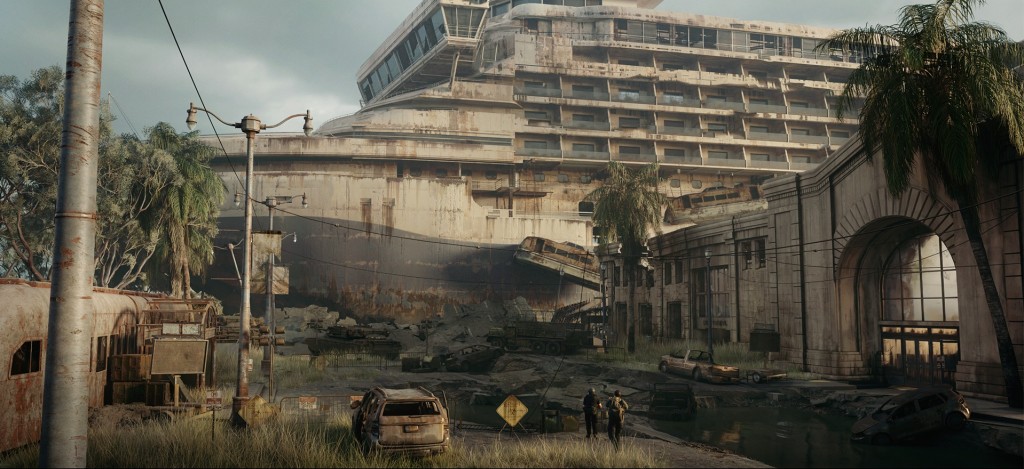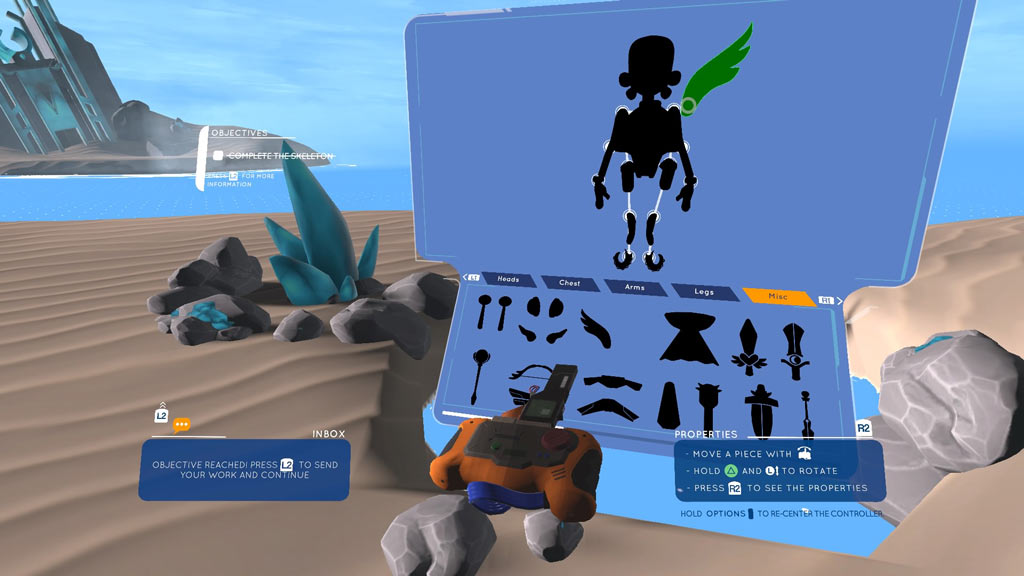
Probe: A Game Dev Experience Review (PS4) – Since the golden age of home gaming, there has only been a sprinkling of titles which allow players to design their own games, the zenith being the mind-blowing Dreams by Media Molecule which allows anyone with enough patience and skill to produce more or less any type of game to a very high caliber indeed.
But there have been precious few (if any) titles which give prospective game designers a taste of how a modern game studio is run and how the team of programmers and artists interact in order to produce quality software to a deadline. Probe from new Spanish developers Voxel Labs S.L. does just that, but aside from the educational aspects, is it enjoyable enough to inspire gamers to carve out a new career in game design?
Probe: A Game Dev Experience Review (PS4) – Learn The Ropes At A Game Studio
Your new career begins as a freelancer at Ecosoft where you have been brought in to provide support for the development of their new game Solar Blossom and some outsourced artwork for another studio’s game Emissary. Wandering around the reception of the rather swish studio in first person, you soon meet the studio boss who fills you in on some background to the company, their latest projects and who you need to find within the offices to speak to.
Passing through another door, you find the head of design who briefly ‘chats’ via on screen text with further information and an invitation to begin your first task – lighting a videogame.
These rudimentary tasks drip feed new terms and techniques in batches of three, with each slightly more complex requirement available after completion of the one before. Firstly, you must arrange a light source in a box in order to wake up a sleeping dog, leading to the third task of placing a spotlight on the lens of a projector in order to shine an image on a screen.
Completing one batch of tasks unlocks the next bunch via other team members who then introduce further elements of game production such as ‘actions’, ‘character design’, ‘3D modelling’, and ‘sequencing’.
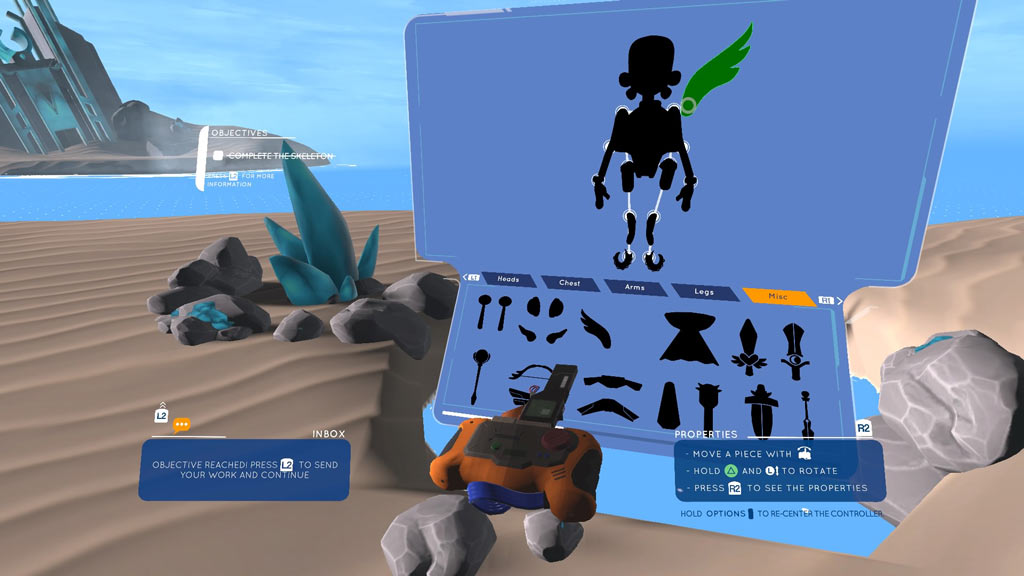
Edutainment
Completion of each task unlocks a real life QR code link to educational resources for budding programmers to further their knowledge on whichever task has just been completed which is a genuinely nice touch, although presumably most of these resources are accessible to anyone able to use a search engine.
It’s a fairly large team who you work amongst, and they range from friendly and warm, cordial but busy, to downright rude, the latter of which were the most entertaining. Chatting to the majority of the team leads to one-way pre-programmed throwaway dialogue, but at least Voxel have imbued these characters with some element of personality to give the work experience a sense of reality.
As the game takes shape during your time at Ecosoft, you’ll see a satisfying progression to your contributions in how small elements combine from different departments to produce a finished product. In this case, it’s a colourful 3D platform game which amply demonstrates the rudimentary skills you’ve picked up, but not a great deal more. Still, for anyone starting out in the industry, it’s a nice dip into the terminology used in a modern studio along with how tools, lengthy rendering times and teamwork are key elements to investigate and learn more about.
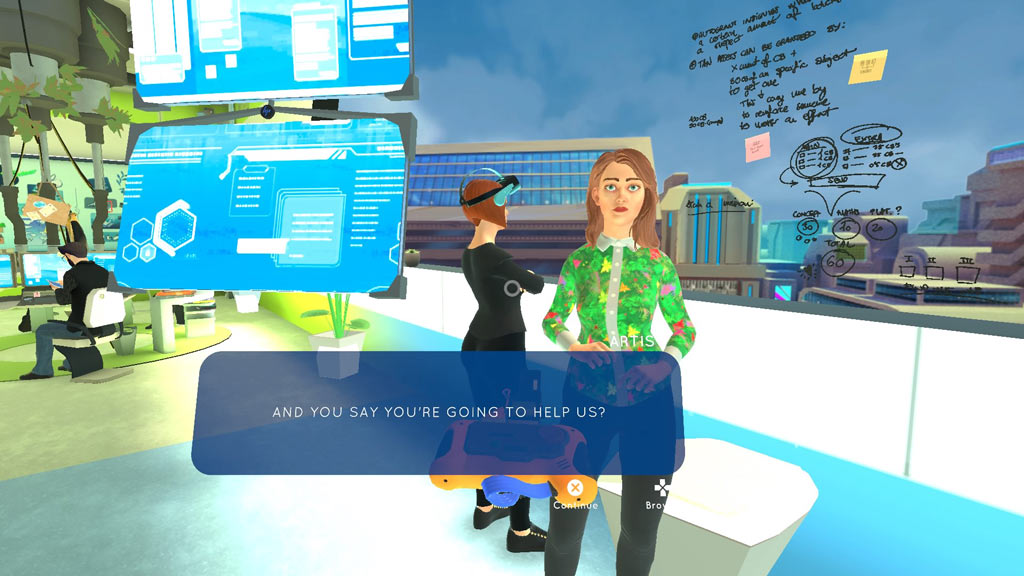
Pleasant, Functional And Warming Like Hot Bovril
Graphically the atmosphere is pleasant, functional and welcoming, and the individual programming pieces and modelling sections are simple and easy to work with. Backed up by an interface which is clear and intuitive enough to negate the need of wading through reams of text instructions. The background music is unobtrusive as are the blips and spot effects throughout, but as there is a total absence of speech, you may as well sit back and listen to your favourite tunes like some of the other staff around Ecosoft’s luxurious workspace.
So that’s the positive stuff. The bulbous and incomprehensibly awful flaw which pretty much defecates over the whole project is the control system used to perform creative tasks. You see Probe is a game designed for VR but the developers have also released it as a non-VR title, with a control system which utilizes the DualShock’s motion sensors along with both analogue sticks in order to move objects around a 3D design space.
While you’re unable to move in and out of the 3D canvas as you work, you are expected to position objects precisely on the X, Y and Z axis which borders on impossible when you are also required to hold Square to grab your body part or scenery block. VR players will also be saddled with similar problems, but it’s possible to imagine that the clunkiest of control systems might edge closer to being remotely usable with a headset taking up the job of one of the analogue sticks.
Initially controlling the cursor and your chosen light / body part / 3D object in 2D or shallow 3D doesn’t appear to be game-breakingly terrible, just bloody annoying. But as you move onto 3D modelling, you’ll spend more time trying to perform the most simplistic task such as placing a tree trunk on a lawn than you will making any sort of design choices or creative decisions.
Any budding young game designers will get this far and decide that a career in Chartered Accountancy will offer a less stressful and more creative career path than this. Wrestling with a 3D tree trunk for five minutes when it should ideally take five seconds will suck the joy out of you quicker than it takes to say “Solar Blossom can go and take a running jump off of a short pier”.
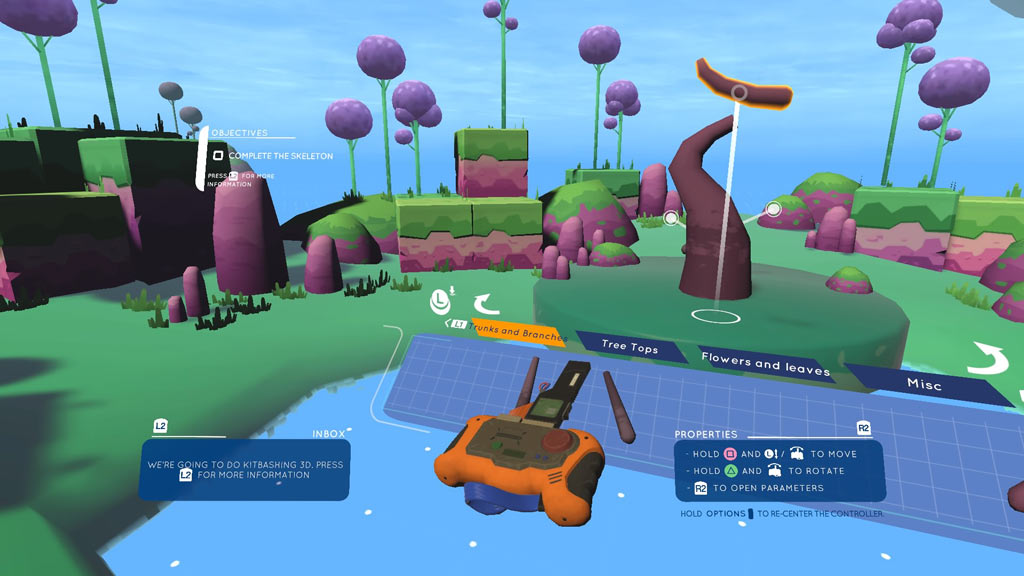
Hamstrung By Their Own Petard
The most enjoyable aspects of the creative process are therefore hamstrung by your inability to perform the most rudimentary tasks as you’ll either to be struggling to see where to put anything or you’ll get so frustrated by the time it’s taken to do a rudimentary task, you’ll be gagging to get out of there and not care how it turns out as you rush to finish.
It’s a shame then, that an educational title with the best of intentions which has been put together with a great deal of enthusiasm and attention to detail has omitted to deliver a control system which allows people to play it. No doubt in VR it sidesteps some of the worst problems imposed on non-VR players and frees players up to work with the tools more easily whilst immersing themselves in the work placement, and it can be recommended cautiously on these terms.
Otherwise, on a normal screen and with a DualShock steer clear, as you’ll be struggling to learn the ropes as Probe hoists you on its intensely annoying petard.
https://www.youtube.com/watch?v=Bw-JS9CC4MY
Probe: A Game Dev Experience is available now on PSVR, PS5, and PS4.
Review copy courtesy of Voxel Labs S.L.
The post Probe: A Game Dev Experience Review (PS4) – Learn The Ropes At A Game Studio appeared first on PlayStation Universe.
